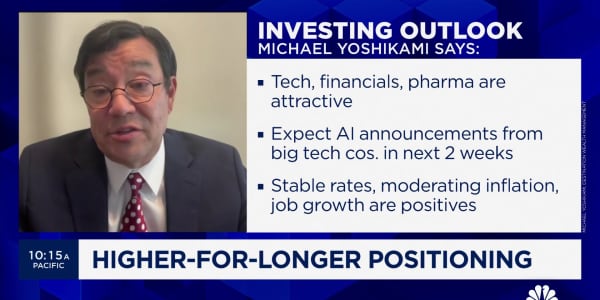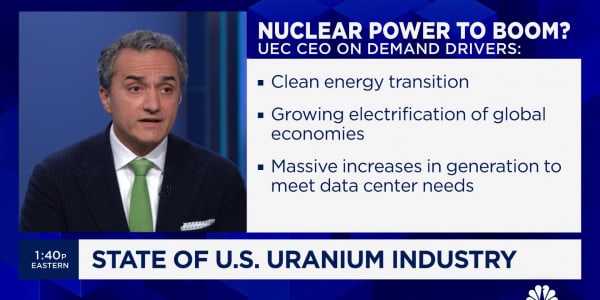The idea that rising interest rates lead to a decline in investment spending is at the core of a lot of traditional investment theory, monetary policy and fears about what will happen when the Federal Reserve withdraws its accommodative monetary stance.
And it may just be wrong.
A new working paper by two Federal Reserve economists finds that business leaders don't think that interest rates matter very much, all other things being equal.
Interest rate sensitivity of investment plans
| Change in borrowing costs<br> that would prompt a change<br> in investment plans | (1) In response to a<br> decrease in interest rates<br> Number (pct.) | (2) In response to an<br> increase in interest rates<br> Number (pct.) |
|---|---|---|
| 0.5 percentage point | 17 (3%) | 30 (6%) |
| 1 percentage point | 27 (5%) | 52 (10%) |
| 2 percentage points | 43 (8%) | 85 (16%) |
| 3 percentage points | 27 (5%) | 61 (11%) |
| More than 3 percentage points | 60 (11%) | 108 (20%) |
| Likely would not change plans | 367 (68%) | 198 (37%) |
| Total | 541 (100%) | 534 (100%) |
| Memo: "Not applicable" answers | 139 | 146 |
Source: Source: Federal Reserve
The economists, Steven Sharpe and Gustavo Suarez, analyze the data from a 2012 survey by Duke University and CFO Magazine of the chief financial officers of several hundred U.S. companies. They find that most firms claim to be insensitive to cuts in interest rates, and only mildly more responsive to interest rate increases.
The title of their paper sums it up nicely: "The Insensitivity of Investment to Interest Rates: Evidence from a Survey of CFOs."
Although a lot of public discussion about interest rate policy continues to assume the connection between rates and investment, Sharp and Suarez point out that the empirical evidence from studies prior to their own has been "mixed evidence, at best, for a substantial interest-rate effect on investment."
The departure from conventional wisdom is most striking when it comes to falling rates. Only 8 percent of the CFOs said they would raise their company's investment spending if interest rates declined 1 percentage point. A 2 percentage point decline raised that number to 16 percent. Most said it would make no difference.
Rising interest rates could have stronger effects than declining rates. Sixteen percent of CFOs said that an increase of 1 percentage point would cause their investment spending to fall. A decline of 2 percentage points brought that up to 31 percent.
(Read more: The Economics of Elysium)
It is a bit odd that the answers are so asymmetrical. If falling rates don't prompt rising investment spending, why would rising rates push spending down? One explanation may be that interest rates are already very low. Rates may just have less room to stimulate spending when they are already so close to zero.
There's reason to be cautious about the survey's findings. While some economic theories claim that investment spending should rise directly because of a fall in interest rates, some others have a less direct route that the survey may have accidentally excluded.
The survey asked the CFOs to assume that "demand and cost conditions faced by your firm and industry remain the same." It then asked: "By how much would your borrowing costs have to decrease to cause you to initiate, accelerate, or increase investment projects in the next year?"
(Read more: Teaching the Market Monetarists about money)
While this assumption of unchanging demand and costs may be great at isolating the direct influence of borrowing costs, it also conceals altogether the possibility that interest rates increase spending by influencing expectations about demand.
In the view of the Austrian School of economics propounded by Friedrich Hayek and Ludwig Von Mises, interest rates affect spending by providing signals about future consumption.
In their view, falling interest rates signal increased savings, which in turn mean that there will be more money available for future consumption. In other words, falling interest rates were the outward sign that people were deciding to consume more in the future and less right now.
So businesses would respond to falling interest rates by increasing long-term investments not because the cost of capital has fallen but because they expect increased future demand.
The survey rules out this mechanism because it requires the assumption that demand remains unchanged despite changes in the interest rate. So what the study shows is something more modest than "interest rate insensitivity"—if demand expectations don't change, then investment plans won't change much either.
Of course, this is only a defect if the assumption isn't realistic. The view of Mises and Hayek that interest rates were signals about savings and consumption were a product of their times.
They were writing about a time when currencies were backed by gold and exchange rates tended to be fixed. Without those constraints, prevailing interest rates do not directly signal anything about current savings and future consumption. Instead, they reflect policy-makers' views on things like what rate will bring about both price stability and low unemployment.
This means that interest rates aren't really very good at communicating to CFOs what to expect in the future. And, in turn, would mean that CFOs wouldn't rely much on interest rates when making plans for the future.
—By CNBC's John Carney. Follow him on Twitter @Carney







